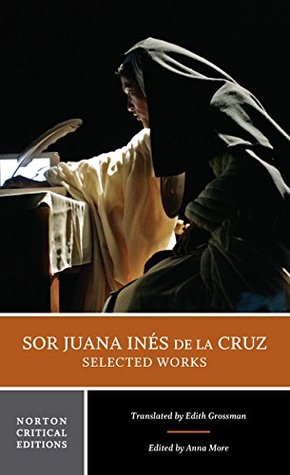More on this book
Community
Kindle Notes & Highlights
Read between
April 21 - May 16, 2018
Beginning in 1693 and until her death in 1695, Sor Juana signed a number of declarations renouncing her studies and renewing the vows she took upon entering the convent.14
One who is sad criticizes the happy man as frivolous; and one who is happy derides the sad man and his suffering.
praising Sor Juana’s talents but reprimanding her for dedicating so much time to studying and writing on secular rather than sacred subjects. Sor Filotea, or “Lover of God,” was not a nun but a pseudonym that permitted the true author of the prologue, the bishop of Puebla, Manuel Fernández de Santa Cruz (1637–1699), to communicate his reprimand as sisterly advice from one nun to another.
The “Response,” however, is a tighter and lengthier argument that employs strategies from forensic oratory to unravel step by step the bishop’s accusation and to build an alternative case.
The center of Sor Juana’s letter is a defense against the bishop’s main charge that “God does not want letters that give rise to presumption in woman.”
Sor Juana counters this charge that writing on secular subjects leads to vanity and disobedien...
This highlight has been truncated due to consecutive passage length restrictions.
in her period.
within a greater argument that she is naturally “inclined” to study and write. In essence, Sor Juana trumps the Church hierarchy by claiming that her natural abilities are God-given.
she notes that her intellect and Vieira’s share a common origin, and should have the same freedom to critique authorities.
My judgment is not so austere a censor that it takes exception to your verses—for which Your Grace has been so celebrated—since Saint Teresa and Gregory of Nazianzus6 and other saints canonized this ability with their poems, but I should like you to imitate them in the choice of subjects as well as in technique.
I do not study to write, much less to teach (which would be excessive pride in me), but only to see
whether by studying I will be less ignorant.” This is how I respond and how I feel.
He knows I have asked Him to dim the light of my understanding, leaving only enough for me to obey His Law, for anything else is too much in a woman, according to some; there are even those who say it does harm.
stopped): I mean to say I continued my studious effort (which for me was repose whenever I had time away from my obligations) to read and read some more, to study and study some more, with no teacher other than the books themselves.
has been so difficult that I could say with my father Saint Jerome (although not with his achievements): The labor it has cost me, the difficulties I have endured, the times I have despaired, and the other times I have desisted and begun again, all because of my determination to learn, to what I have suffered my conscience is witness and the conscience of those who have lived with me.51


